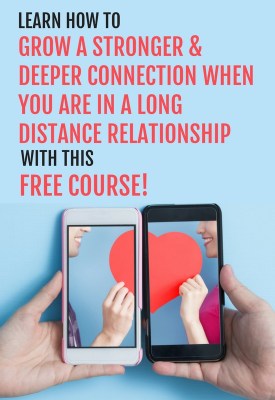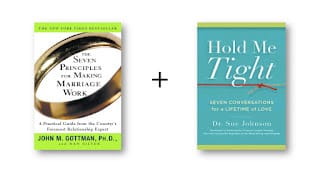“If you don’t cook me pizza for dinner, I’m not going to
love you anymore.”
This announcement came at me last night, delivered by my 5-year-old son. He is usually one of the most cheerful, easy-going humans you’ll ever meet. But recently he’s started to work out power-dynamics. And he really likes pizza. So he pulled out the biggest gun in his arsenal—the weapon of withholding love.
Because he is five, this power play didn’t bother me at all.
I stayed calm. In fact, I had to work hard not to laugh at him.
It’s (usually) easy for us to react calmly and lovingly to
emotional threats when they are delivered by young children. We know they love
us. We know they don’t really mean what they are saying in the moment. And it’s
often as plain as day when they are trying to manipulate us.
It’s a very different story when someone we’re dating (or married to) pulls a grown-up version of the same maneuver. Often we’ll be left confused about what’s going on. Are they tired and busy, or are we getting the silent treatment? Are we being insecure and needy, or are they dishing out passive-aggressive jabs? Are they pointing out genuine issues we need to be aware of and work on, or are they blaming us for something to deflect attention or avoid facing up to their own issues?
In other words… Especially when you’re in a long distance relationship, it’s sometimes hard to figure whether they’re being a jerk and pulling out a power move, or not.
To help you recognize whether power plays are at work in your long distance relationship, we’re going to take a closer look at 13 common power plays that show up in long distance relationships.
Before we do, though, let’s pause and ask what it is that makes something a power play?
There’s a surprisingly simple answer to this question: Something is probably a power play if your partner is showing little regard for your needs and interests.
In other words. If your significant other is doing or saying something that is only focused on meeting their own needs, even if it means you get hurt in the process, that’s a power play.
So let’s dig a bit deeper. What are some common power plays that show up in long distance relationships?
1. Stonewalling
What is
stonewalling? Stonewalling is using silence as a weapon or an escape. It’s
controlling the situation by refusing to engage—refusing to talk about a
particular issue, or just refusing to talk to you at all.
Distance makes this particularly easy to do, because your SO
can just stop answering the phone or replying to texts and emails for a while.
If you’re on the receiving end of stonewalling, it can drive you crazy with
frustration, second-guessing, and self-doubt. It also tends to make you scared
of bringing up the particular issue that “set them off” again, for fear of
rocking the boat.
2. Ghosting
Ghosting is an extreme version of stonewalling and an
increasingly common way of “breaking up” with someone you met online. Ghosting
is when someone suddenly cuts all ties and communication with the person
they’ve been seeing or talking to. They will block you from all
their social media accounts, refuse to answer mail or phone calls, and just…
virtually disappear. It’s disrespectful, and cowardly, and totally
taking the easy way out.
If this happens to you, it’ll hurt. A lot. But remind
yourself that you really don’t want
to be with someone who would do this to you, and focus on moving forward.
3. Hanging up
When you’re in a long distance relationship, all you have is
the phone or a video connection. Holding those hostage by hanging up on someone
is a power play.
4. Stirring up jealousy
If someone’s flirting with other people and making sure you know about about it, that’s a power play designed to make you jealous. They might deliberately leave ‘likes’ or comments on someone else’s social media profile. Or casually drop a certain name into conversation primarily because they want to make you “wonder” or “keep you guessing”. They may regularly mention how attractive they find a particular celebrity, or habitually bring ex-partners into the conversation.
It can be hard to figure out why someone is doing these
sorts of things. But if you’re fairly sure they’re mostly trying to stir up
jealousy and make you feel insecure, it’s a power play.
5. Using money to “buy” certain commitments or behavior
If
they offer to pay your bills, or buy your plane tickets for a visit, but they
want you to do something in return (e.g., call every night to check in, avoid a
certain friend they’re jealous of, send you nude pictures, etc) that’s a
controlling power play.
6. Making you feel bad if you’re not ready to send saucy pictures or “talk dirty”
Sex is a complicated issue in any relationship. Especially
when you meet online, it’s very wise to take it slow and be very careful about
sending anyone revealing images. If they ask for nude pictures or phone sex and
make you feel pressured (or bad if you aren’t ready for that) they’re in the
wrong. That simple.
7.
Making you feel bad if…
While we’re talking about feeling bad… Sometimes you’ll feel bad after a certain interaction because you know you’re in the wrong, or you’re feeling insecure about something. Other times, however, you’ll end up feeling bad because you’re being pressured in unhealthy ways. For example, if they start expecting or demanding that you return emails and texts within a couple of minutes, or they need you to call multiple times a day just to “check in” and let them know what you’re up to, they are manipulating you.
8.
Threatening to end the relationship unless…
Look, if they’re threatening to end the relationship unless you get treatment for a gambling, drug, sex, or alcohol addiction, they’re not being jerk. If they’re threatening to end the relationship unless you ____(insert: send nude photos, send money, call every single day, cut all contact with certain friends, etc)___] they are almost certainly pulling out a power-play card.
9.
Blaming you for…
This power play often occurs when your significant other feels defensive about something. Let’s take cheating as an example. If you are worried your partner may be cheating and you try to bring it up with them, they’re likely to feel defensive.
If your partner is not cheating on you, they may understandably feel defensive when approached on this topic. However, people who are cheating can also react defensively and use distraction and blaming as a tactic when they are confronted.
For example, they may strongly deny any wrongdoing and
dismisses your concerns. They may say things like, “we’re just friends,” or
“we’re not sleeping together so what’s the big deal?” or “chill out, it was
just an email!” Then they often start
to blame you.
They may claim that you are being irrational, paranoid, insecure, or petty, and try to transfer the focus off of themselves and onto you. They may say that you are to blame for whatever has been happening because you’ve been acting a certain way, or not meeting their needs.
Bottom line? Blame is often a power play.
10.
Shaming you for…
Does your significant other habitually criticize you, ridicule what you do or say, or make you feel like you’re dumb or an inconvenience? These tyrannical power plays are designed to undermine your self-esteem and confidence, and make the other person feel powerful or better about themselves.
Beware. All of the power plays on this list are serious warning flags in a relationship, but this is among the worst of the lot. You do not want to be with someone who often puts you down and triggers feelings of shame.
11.
Expecting you to be constantly available and responsive
We all love it when we send an email or a text and get an
answer back straight away. When you’re in a long distance relationship,
however, it’s easy for that natural desire for contact and quick responses to
morph into expectations and then demands.
How does this become a power play? Well, this can be a subtle (and not always an intentional power play). For example, your SO might start to get upset and angry if you don’t answer a text or call immediately. You may begin to feel you need to be responsive and available to avoid upsetting them. Your SO may not intentionally be trying to manipulate you, but you are being manipulated nonetheless.
12.
Leaving you hanging
We just discussed how it’s not reasonable to expect someone to always pick up the phone when you call, or to answer every email or text immediately. People have lives and responsibilities (and moods) and sometimes they’re just not in a state or place to be able to answer you straight away.
The flip issue to this, though, is leaving someone hanging. It is deliberately and habitually making them wait for a response.
For example, if they know they can see when they’ve read a message or a text, but they deliberately don’t respond right away, that’s just making you sweat. If this happens often they’re probably on a power trip, or they’re reacting because they feel like they you are being too needy and smothering them. Either way, something needs to be discussed.
Another way this power play shows up is if your SO constantly
misses scheduled phone or video call dates. It means they’re leaving you on the
back burner, and not making you a priority. It’s rude, and it often means they’re
not really that invested in the relationship.
13.
Stringing you along
If your long distance ex keeps popping back into your life (or
inbox, as the case may be) they may be using you to make themselves feel good.
What do I mean? Well, many people secretly want their ex’s to still want to be with them, even if they themselves don’t want to be in the relationship anymore. So after a breakup, it can be tempting to stay in touch your ex, especially if you were the one that broke things off. Knowing there are people out there who find you interesting and attractive is a huge ego-boost. But purposefully sticking around like this for your own selfish reasons can ruin your ex’s chances to really move on. That’s what can make this a power move.
What should you do…
So what should you do if you spot one of these power plays in your long distance relationship (or after it, as the case may be)?
The bottom line, of course, is that you should not use these power plays yourself, and you should not allow them to be used against you.
I’m going to write a whole post soon on how to protect yourself from these sorts of
power plays becoming a big problem in your relationship.
However, what to do once they’ve become a big problem in your long distance relationship is simpler.
If you find yourself repeatedly caught up in one of these
power struggles with someone you’re dating, and calm, rational, non-blaming
discussions do not change the relationship dynamics, then in most cases the
wise course of action is to walk away from the relationship.
Hold out for a relationship where you can be strong or vulnerable at different times. Where
you can feel trusted, trusting, and safe most of the time. Where there is a
balanced give and take that is based on respect and flavoured with kindness. Where
power plays aren’t a regular part of the dynamic.
We all have bad days, weeks, and months. So I’m not saying you should ditch your relationship the minute you see one of the power plays rear their ugly head, but do use them as a signal to think hard.
Do you think your relationship is generally headed in the right direction, and is healthy? Do you feel like your SO makes you a better version of yourself… or a different version? Check in with your instincts. Talk to trusted friends.
And then… choose what seems wise, even if it’s not what feels easy or good in the moment.
Share this Post












Recent Comments